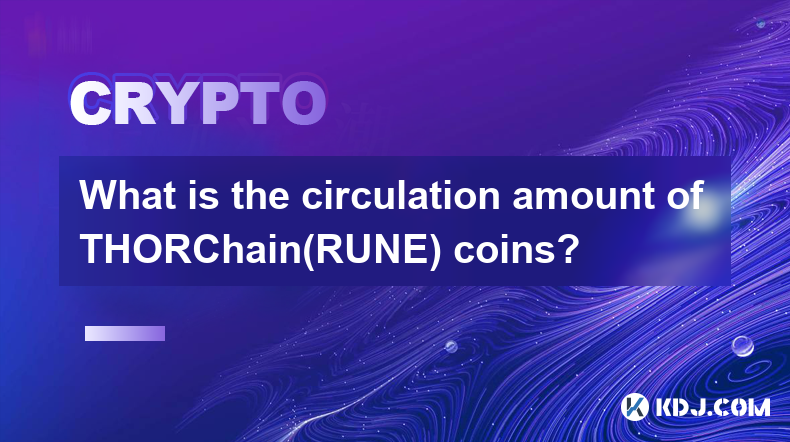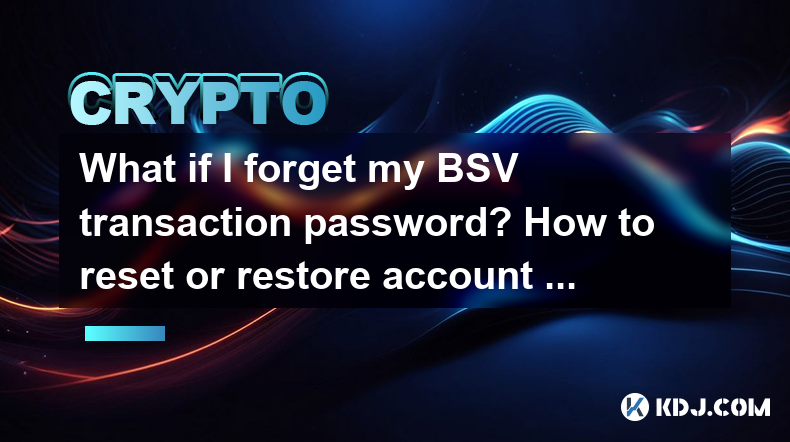-
 Bitcoin
Bitcoin $96,361.0039
-0.70% -
 Ethereum
Ethereum $1,837.6964
-0.39% -
 Tether USDt
Tether USDt $1.0003
-0.02% -
 XRP
XRP $2.1938
-0.55% -
 BNB
BNB $599.6872
0.02% -
 Solana
Solana $147.3049
-0.81% -
 USDC
USDC $1.0000
0.00% -
 Dogecoin
Dogecoin $0.1774
-1.55% -
 Cardano
Cardano $0.7118
2.71% -
 TRON
TRON $0.2457
-0.57% -
 Sui
Sui $3.3186
-3.60% -
 Chainlink
Chainlink $14.3240
-2.87% -
 Avalanche
Avalanche $20.8665
-1.04% -
 Stellar
Stellar $0.2731
0.36% -
 UNUS SED LEO
UNUS SED LEO $8.9507
0.72% -
 Toncoin
Toncoin $3.1073
-0.91% -
 Hedera
Hedera $0.1825
-1.13% -
 Shiba Inu
Shiba Inu $0.0...01307
-2.06% -
 Bitcoin Cash
Bitcoin Cash $366.0024
-3.28% -
 Hyperliquid
Hyperliquid $21.2965
2.17% -
 Litecoin
Litecoin $86.9675
-0.79% -
 Polkadot
Polkadot $4.0568
-2.21% -
 Dai
Dai $1.0000
0.00% -
 Monero
Monero $279.7422
-0.32% -
 Bitget Token
Bitget Token $4.3882
-1.34% -
 Ethena USDe
Ethena USDe $1.0006
-0.02% -
 Pi
Pi $0.5863
-1.35% -
 Pepe
Pepe $0.0...08263
-4.84% -
 Aptos
Aptos $5.2336
-3.41% -
 Uniswap
Uniswap $5.1139
-2.37%
What is the circulation amount of THORChain(RUNE) coins?
THORChain's circulating supply of RUNE coins, which enable cross-chain trading, currently stands at approximately 252 million RUNE, representing half of the total supply.
Dec 07, 2024 at 04:48 pm

What is the Circulation Amount of THORChain(RUNE) Coins?
THORChain (RUNE) is a decentralized liquidity protocol that enables cross-chain trading of cryptocurrencies without the need for intermediaries or wrapping assets. It aims to create a more efficient and interoperable decentralized finance (DeFi) ecosystem.
Circulation Amount of RUNE Coins
The total supply of RUNE coins is capped at 500 million. As of February 26, 2023, the circulating supply is approximately 252 million RUNE, representing around 50% of the total supply.
How is RUNE Used?
RUNE coins serve several critical functions within the THORChain ecosystem:
- Network Security: RUNE holders can stake their coins to earn rewards and participate in the consensus process, securing the network and validating transactions.
- Transaction Fees: Users pay transaction fees in RUNE to facilitate cross-chain swaps and other operations on the network.
- Governance: RUNE holders can participate in governance decisions and vote on proposals related to the protocol's development and operation.
Distribution of RUNE Coins
The initial distribution of RUNE coins was as follows:
- Seed Round (2019): 10%
- Private Round (2020): 20%
- Public Sale (2020): 30%
- Team and Advisors (Locked): 20%
- Liquidity Incentives: 20%
The remaining 20% of RUNE coins were allocated to the THORChain ecosystem for development, marketing, and other initiatives.
RUNE Tokenomics
The tokenomics of RUNE are designed to incentivize long-term holding and participation in the network:
- Staking Rewards: RUNE holders earn rewards for staking their coins, which encourages network security and stability.
- Transaction Fees: A portion of transaction fees is used to reward stakers and incentivize liquidity providers.
- Governance Rights: RUNE holders have governance power and can participate in decision-making processes related to the protocol's future.
Factors Affecting RUNE's Circulation Supply
The circulating supply of RUNE coins can be influenced by several factors, including:
- Staking Activity: When RUNE holders stake their coins, they reduce the circulating supply, which can support the price.
- New Issuance: If additional RUNE coins are released into circulation, the circulating supply will increase.
- Burn Mechanisms: Some mechanisms within the THORChain ecosystem may burn RUNE coins, permanently removing them from circulation.
- Token Lockups: A portion of RUNE coins may be locked for a period of time, temporarily reducing the circulating supply.
Disclaimer:info@kdj.com
The information provided is not trading advice. kdj.com does not assume any responsibility for any investments made based on the information provided in this article. Cryptocurrencies are highly volatile and it is highly recommended that you invest with caution after thorough research!
If you believe that the content used on this website infringes your copyright, please contact us immediately (info@kdj.com) and we will delete it promptly.
- Amidst Ongoing Price Volatility, SHIB Memecoin Market Has Recorded a Correction of 2.38%
- 2025-05-04 04:10:14
- There’s a difference between chasing hype and holding conviction—and in 2025
- 2025-05-04 04:10:14
- Bitcoin Solaris (BTC-S): Mobile Mining and Liquid Staking Opens Bitcoin to the Masses
- 2025-05-04 04:05:12
- MetaMask Launches Metal Payment Card in Collaboration with CompoSecure and Mastercard
- 2025-05-04 04:05:12
- Bitcoin's Scarcity Is Driving Demand and Pushing Prices Higher
- 2025-05-04 04:00:26
- FloppyPepe (FPPE) Presale Gains Momentum As The Meme Coin Frontruns The Crypto AI Market
- 2025-05-04 04:00:26
Related knowledge

BSV transaction fees suddenly increased? How to adjust the handling fee to save costs?
May 02,2025 at 06:42am
Understanding BSV Transaction FeesBSV (Bitcoin SV) aims to fulfill the original vision of Bitcoin as a peer-to-peer electronic cash system. One of the key elements in this system is the transaction fee, which compensates miners for including transactions in the blockchain. Recently, users have noticed a sudden increase in BSV transaction fees, which can...

Does BSV transaction require real-name authentication? Is anonymous trading feasible?
May 03,2025 at 03:14pm
The question of whether BSV (Bitcoin SV) transactions require real-name authentication and whether anonymous trading is feasible is a complex one, deeply intertwined with the broader dynamics of cryptocurrency regulations and blockchain technology. Let's delve into these aspects to provide a comprehensive understanding. Understanding BSV and Its Transac...

How to solve the high slippage of BSV transactions? How to choose between limit and market orders?
May 02,2025 at 09:01pm
High slippage can be a significant concern for traders dealing with Bitcoin SV (BSV) transactions. Slippage refers to the difference between the expected price of a trade and the price at which the trade is actually executed. This can occur in fast-moving markets or when there is low liquidity. To address this issue, understanding the mechanics of slipp...

What if BSV node synchronization is slow? How to optimize local wallet performance?
May 03,2025 at 04:35pm
When dealing with BSV (Bitcoin SV) node synchronization and optimizing local wallet performance, it's crucial to understand the underlying issues and implement effective solutions. Slow synchronization and poor wallet performance can significantly hinder your experience with the BSV network. This article will delve into the reasons behind slow BSV node ...

How to check BSV transaction records? How to use the blockchain browser?
May 03,2025 at 06:50am
Checking BSV (Bitcoin SV) transaction records and using a blockchain browser are essential skills for anyone involved in the cryptocurrency space. These tools allow you to verify transactions, check wallet balances, and understand the flow of funds on the blockchain. This article will guide you through the process of checking BSV transaction records and...

What if I forget my BSV transaction password? How to reset or restore account permissions?
May 02,2025 at 02:49pm
Forgetting your BSV (Bitcoin SV) transaction password can be a stressful experience, but there are steps you can take to reset or restore your account permissions. This article will guide you through the process, ensuring you understand each step and potential solutions available to you. Understanding BSV Transaction PasswordsBSV transaction passwords a...

BSV transaction fees suddenly increased? How to adjust the handling fee to save costs?
May 02,2025 at 06:42am
Understanding BSV Transaction FeesBSV (Bitcoin SV) aims to fulfill the original vision of Bitcoin as a peer-to-peer electronic cash system. One of the key elements in this system is the transaction fee, which compensates miners for including transactions in the blockchain. Recently, users have noticed a sudden increase in BSV transaction fees, which can...

Does BSV transaction require real-name authentication? Is anonymous trading feasible?
May 03,2025 at 03:14pm
The question of whether BSV (Bitcoin SV) transactions require real-name authentication and whether anonymous trading is feasible is a complex one, deeply intertwined with the broader dynamics of cryptocurrency regulations and blockchain technology. Let's delve into these aspects to provide a comprehensive understanding. Understanding BSV and Its Transac...

How to solve the high slippage of BSV transactions? How to choose between limit and market orders?
May 02,2025 at 09:01pm
High slippage can be a significant concern for traders dealing with Bitcoin SV (BSV) transactions. Slippage refers to the difference between the expected price of a trade and the price at which the trade is actually executed. This can occur in fast-moving markets or when there is low liquidity. To address this issue, understanding the mechanics of slipp...

What if BSV node synchronization is slow? How to optimize local wallet performance?
May 03,2025 at 04:35pm
When dealing with BSV (Bitcoin SV) node synchronization and optimizing local wallet performance, it's crucial to understand the underlying issues and implement effective solutions. Slow synchronization and poor wallet performance can significantly hinder your experience with the BSV network. This article will delve into the reasons behind slow BSV node ...

How to check BSV transaction records? How to use the blockchain browser?
May 03,2025 at 06:50am
Checking BSV (Bitcoin SV) transaction records and using a blockchain browser are essential skills for anyone involved in the cryptocurrency space. These tools allow you to verify transactions, check wallet balances, and understand the flow of funds on the blockchain. This article will guide you through the process of checking BSV transaction records and...

What if I forget my BSV transaction password? How to reset or restore account permissions?
May 02,2025 at 02:49pm
Forgetting your BSV (Bitcoin SV) transaction password can be a stressful experience, but there are steps you can take to reset or restore your account permissions. This article will guide you through the process, ensuring you understand each step and potential solutions available to you. Understanding BSV Transaction PasswordsBSV transaction passwords a...
See all articles




















































































